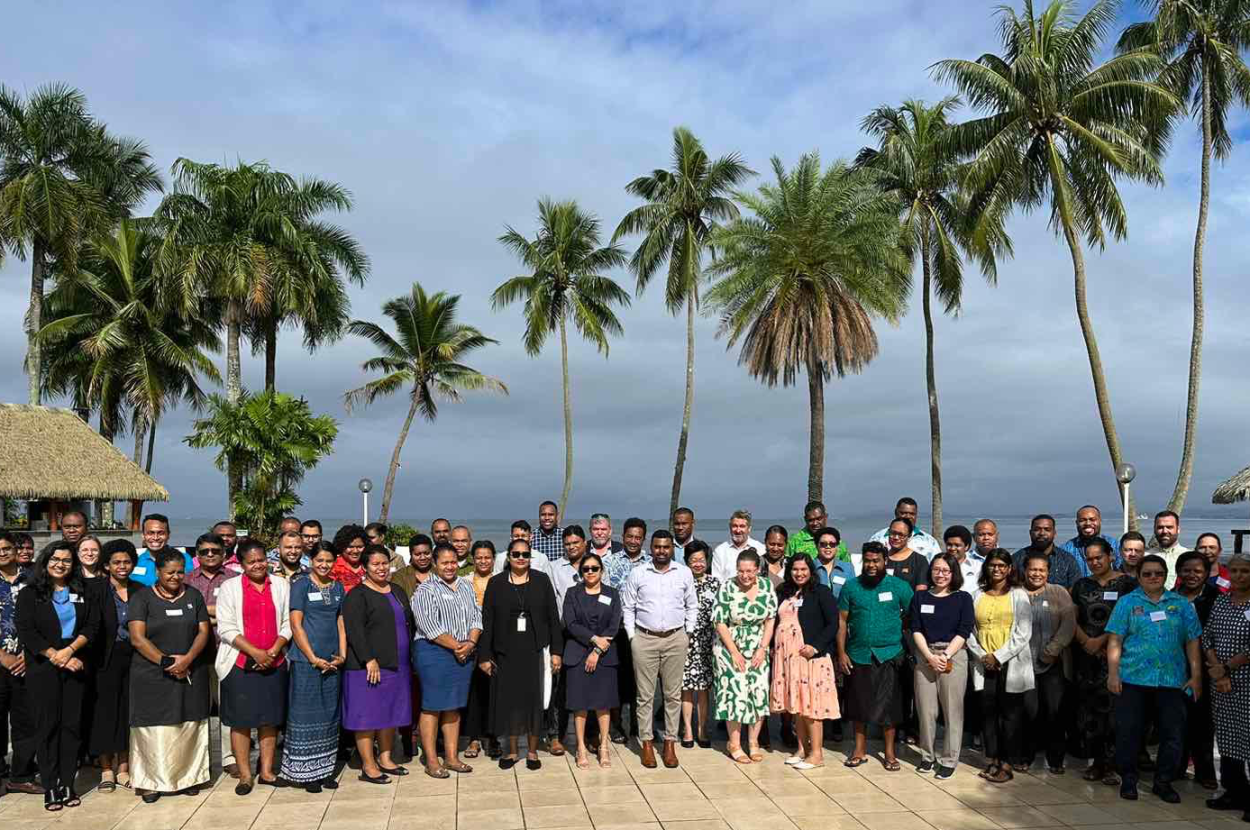
National Determined Contribution Partnership (NDCP) to provide support for Fiji’s Accreditation and Adaptation Pipeline Development
04/08/2023
Pacific Small Island Developing States (SIDS) High level Dialogue on Climate Change
07/09/2023In a bold stride towards a sustainable future, Fiji has set its sights on reducing energy-related emissions by 30% by 2030 through its Nationally Determined Contributions (NDCs) and achieving net-zero emissions by 2050. As part of this ambitious commitment, Fiji is charting a course through the intricate world of carbon markets with the development of its National Carbon Market Strategy Roadmap (NCMSR). This strategic roadmap aims to help Fiji navigate the range of opportunities, mechanisms, and bilateral agreements that it has potential to access.
Through an inclusive national consultation process, the Strategy Roadmap is being co-developed with a diverse range of stakeholders from government ministries, private sector entities, non-governmental organisations, finance institutions, academic institutions and civil society. On the 14 and 15 of August, 2023, Fiji hosted the second NCMSR two-day workshop at the esteemed Holiday Inn in Suva. The process was led by the Climate Change Division of the Office of the Prime Minister (CCD) and is supported through funding from the Australian Government and technical assistance provided by the Carbon Market Institute (CMI). This workshop stood as a strategic evolution of existing carbon projects and initiatives. Participants embarked on a collective exploration of emerging opportunities, prerequisites, and considerations within carbon markets across all the sectors. The shared goal was to define a unified vision, goals, and core principles that would lay the foundation for the Strategy Roadmap. This inclusive process recognizes Fiji’s distinctive strengths, particularly its potential to generate high-integrity carbon credits by collaborating with traditional landowners and local communities.
Presentations from the Consultation Workshop can be accessed below:
CMI presentation – Part 10 CCA – 14.08.2023
Fiji Carbon Markets Workshop Aug14.pptx
NCMS – Capacity Building Priorities
NCMSR Propose Timeline and Actions
Roles of Govt & private sector
Strategic enagement options, participation requirements and key considerations






